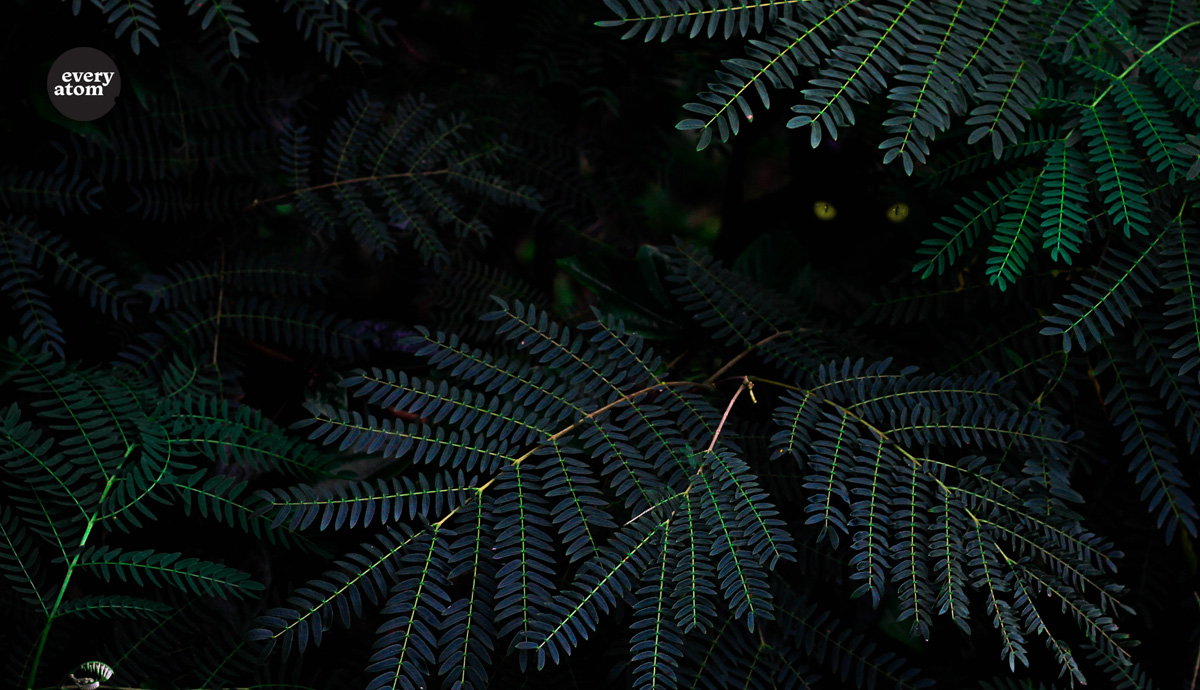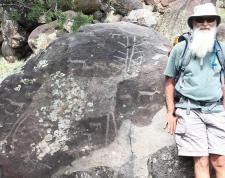Every Atom | No. 170
Introduction to Every Atom by project curator Brian Clements
I think I could turn and live awhile with the animals . . . . they are so placid and self-contained,
Some of the harshest words in Leaves of Grass appear in a reflection on the animals. In a slick rhetorical move, Whitman takes a shot at the all-too-human complex of religious guilt, the endless piling up of material wealth, the worship of gods and other humans, and the demand for middle-class respectability and all-consuming industriousness. But, instead of calling names and pointing fingers at his fellow humans, he tries out the various postures on “the animals”—the lying awake at night and weeping for sins, the nauseating lectures on duty to God, the demented mania of owning things, the kneeling before others like oneself—and thus reveals their absurdity. His imagination recoils at the thought of the animals behaving in such a way. (Writing over a century before sociobiology came to the fore, Whitman likely didn’t think much about hierarchy among the animals, which does require some bending of the knee, some baring of the belly, or other form of submission to one’s own kind.)
The complex of values and mores against which the poet rails would later get names like Capitalist Ideology (which mobilizes religion and culture for the purposes of economy and domination by the ruling class) or Protestant Work Ethic (which does more or less the same thing, ostensibly to the glory of God and not the ruling class). For Whitman, the complex gets no name except for maybe respectability, the engine of nineteenth-century social mobility and class consciousness.
So what does all that have to do with “the animals”? And, for that matter, what are “the animals” in this context? Certainly they are the other-than-human creatures that inhabit the earth. The passage that precedes the one quoted considers them in their particularity: the mouse (“miracle enough to stagger sextillions of infidels”), the mastodon, the buzzard, the snake, the elk, the “razorbilled auk”—past and present, extinct and alive, maybe distant but still vivid. They live on, says the poet, in me: I am “stucco’d with quadrupeds and birds all over.”
To live with the animals, then, is to live with oneself. Or the elements of oneself not sanctioned by respectability. Whatever doubt or regret that keeps you awake at night is not a part of the animal you, but rather some imposition on you, some requirement of respectability for which the poet of healthy-mindedness (to use William James’s term for the predominantly jolly Whitman) reserves a rare negative pronouncement, using language bordering on the hateful: “make me sick,” “sweat and whine,” “demented mania.” For him, respectability stands as the enemy of the animal energy that Leaves of Grass seeks to liberate. Like his contemporary, Thoreau, Whitman says not so fast when it comes to trusting truisms that place religion and other repressive institutions at the pinnacle of human achievement, and he refuses to leave unquestioned the belief that humans have risen above the animals. He invites us to consider the possibility that, unlike them, we have distorted nature and made ourselves sick.
Recommended
Nor’easter
Post-Op Appointment With My Father
Cedar Valley Youth Poet Laureate | Fall 2024 Workshop







